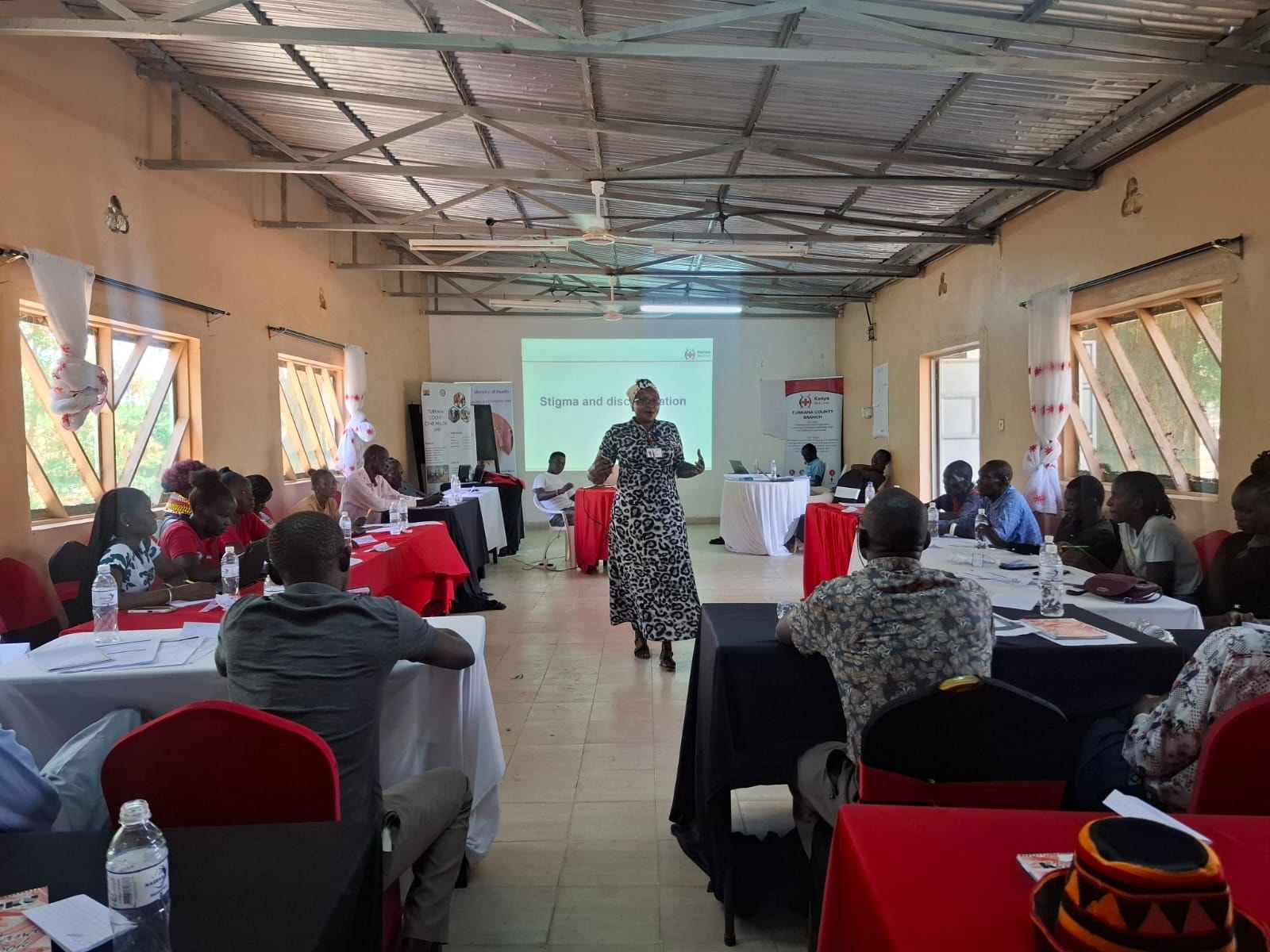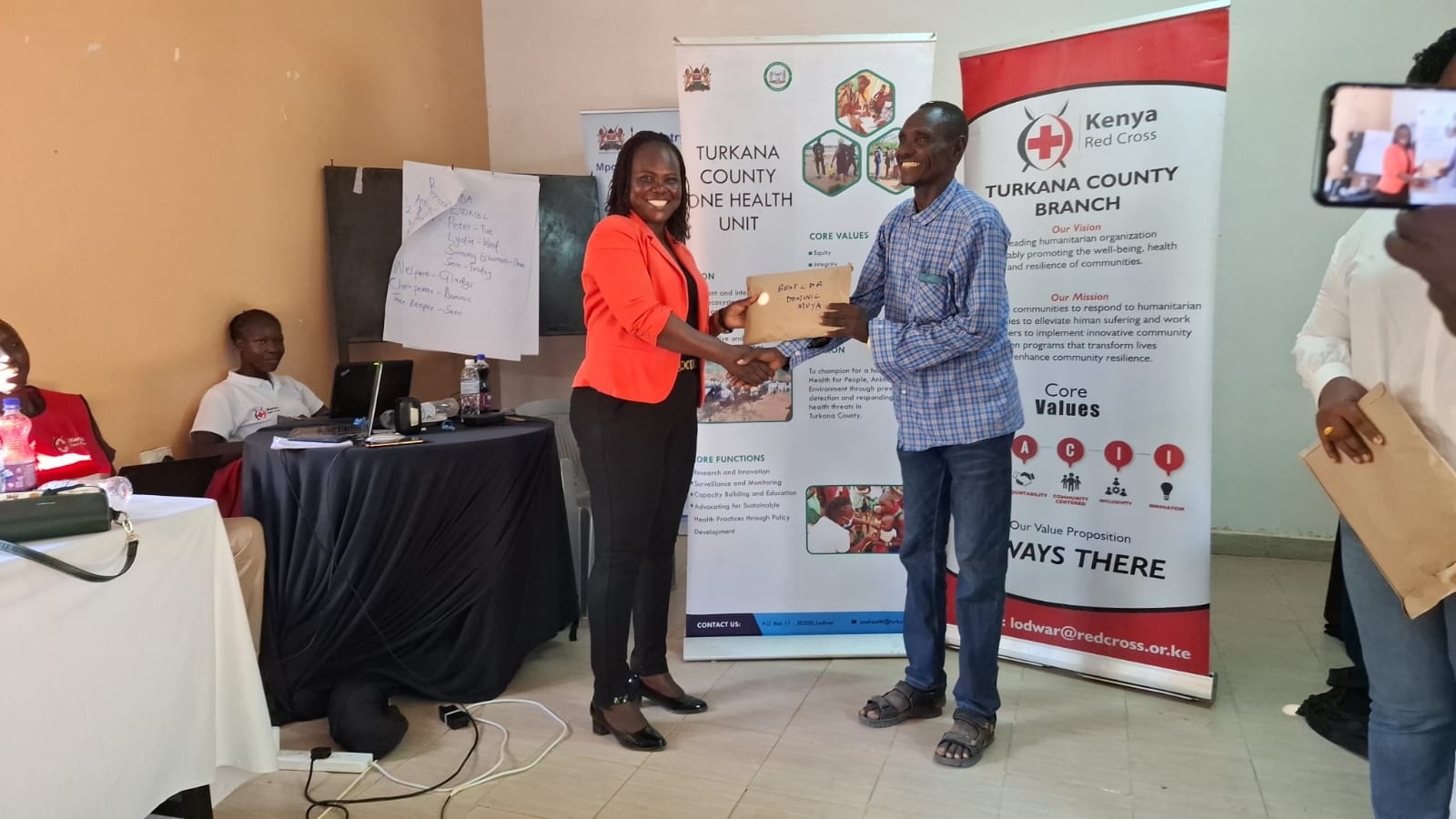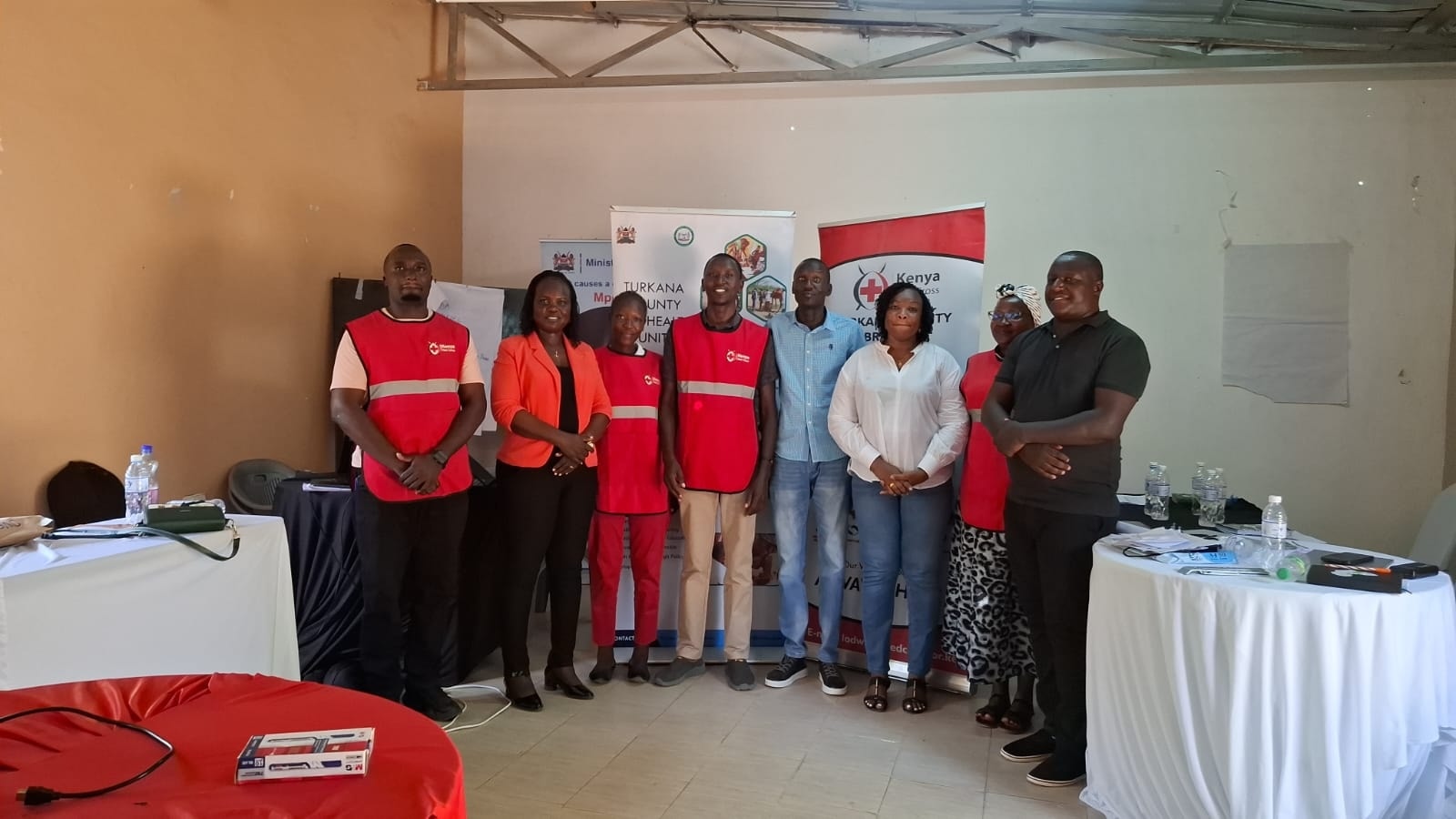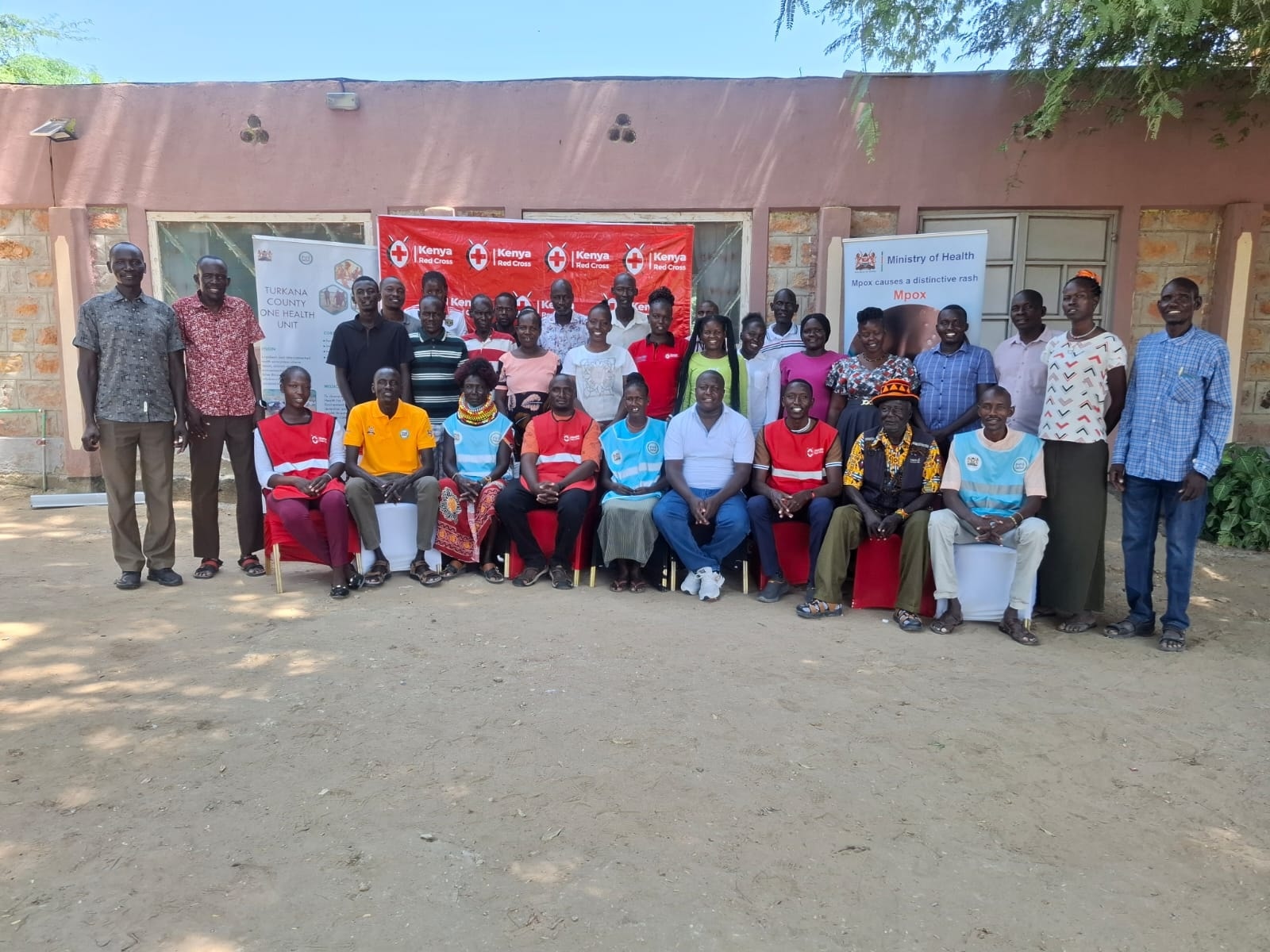In a significant step toward strengthening public health resilience, the Turkana County Government, in partnership with the Kenya Red Cross Society (KRCS) through the PREPARE Project, has concluded a five-day training program to equip grassroots workers with tools to detect and report potential epidemics.
Held in the cross-border sub-counties of Lokichoggio and Lokiriama, the initiative introduced a groundbreaking mobile USSD tool designed to enhance community-based epidemic preparedness and response.
The training brought together 30 community-based workers, including Community Health Promoters (CHPs), Community Disease Reporters (CDRs), Community Health Assistants (CHAs), environmental and climate change champions, and KRCS volunteers.

The program focused on three key areas: Epidemic Preparedness and Response in Communities (EPiC), Community-Based Surveillance (CBS), and Community Engagement and Accountability (CEA).
Participants were trained to use the Epidemic Control Toolkit (ECV), accessible via the USSD code *38460#, which enables them to identify early warning signs, report epidemic-prone conditions, and raise community awareness for timely prevention and response.
Rotich Kipkorir, County One Health Coordinator, highlighted the transformative potential of the USSD tool, which operates without requiring airtime or internet connectivity.
“This tool allows uninterrupted alerts from any location, with real-time feedback to supervisors at sub-county, county, and national levels for swift intervention,” he explained.

However, he noted that the program has so far reached only 7% of Turkana’s population, underscoring the need for additional partners to expand the training to other sub-counties.
Participants expressed enthusiasm for the practical skills gained. Sylvia Lorna, a CHP from Napetan Village in Lokichoggio, emphasized the importance of community outreach.
“Through community dialogues, we can spread health messages widely and encourage early reporting of potential outbreaks,” she said.
Similarly, Moses Ewoi, a CDR from Nadapal, highlighted the training’s focus on preventing animal-to-human disease transmission.
“I now know how to educate pastoralists against consuming dead or infected animals, helping us contain diseases at the border,” he noted.
Gertrude Lowoi, a CHP from Lokiriama, stressed the importance of protecting vulnerable groups.
“Epidemics can devastate unprepared communities. I will prioritize identifying unvaccinated children under five and linking them to care,” she said.
Meanwhile, Joseph Ekalale, an environmental and climate change champion at the Konoo Irrigation Scheme in Loima, underscored the link between environmental health and disease prevention. Overseeing 800 farmers and over 1,000 households, he stated, “I’m ready to educate communities on maintaining clean surroundings to prepare for unforeseen health risks.”
Cyrus Mutai, KRCS Programmes Officer and lead facilitator, emphasized the critical role of surveillance in Turkana’s cross-border regions, where pastoralist mobility heightens the risk of disease importation.
“Communities equipped with knowledge of case definitions are better positioned to prevent outbreaks,” he said.
The training aligns with Turkana’s One Health approach, integrating human, animal, and environmental health to safeguard public health in hard-to-reach and outbreak-prone areas.
In her closing remarks, Chief Officer for Preventive and Promotive Health Services, Janerose Tioko, articulated the county’s vision.
“By equipping frontline workers with knowledge and practical tools, we are building resilient communities that can detect, report, and prevent epidemics before they spread,” she said.

Tioko emphasized that the initiative aims to enhance Turkana’s capacity to respond quickly, coordinate effectively, and protect vulnerable populations, including refugees and host communities.
The training concluded with awards recognizing four participants for excellence in the EPiC and CBS modules, honoring the best overall, best performing, and most improved trainees.
Facilitators included Fredrick Chepkwony, Project Officer for the PREPARE Project, Dr. Erenius Nakadio, Deputy Director of Veterinary Services, and Phoebe Ekal, Director of Environment.
This initiative marks a significant milestone in Turkana’s efforts to build a robust public health framework, leveraging technology and community engagement to create a healthier, more resilient future.

